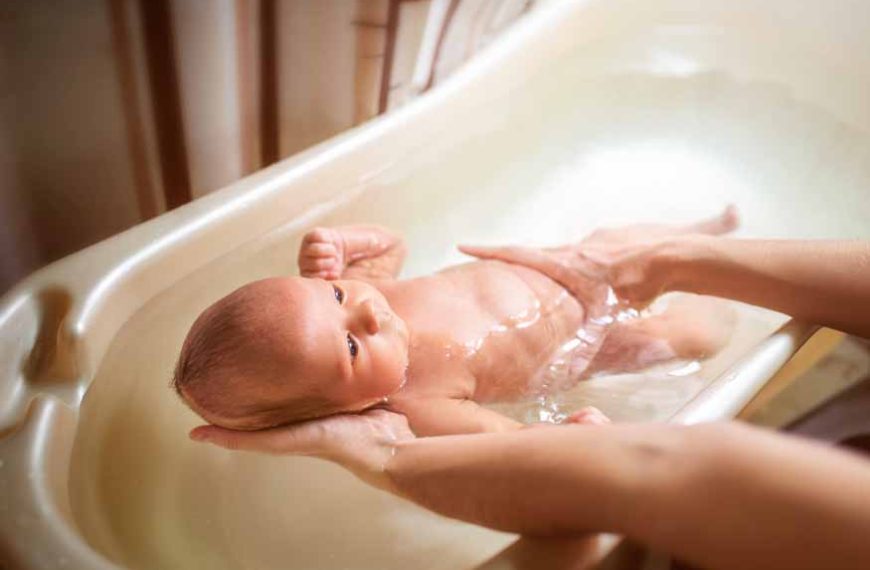Welcoming a newborn into your life is a momentous occasion, filled with joy and excitement. Alongside the cuddles and coos, ensuring impeccable hygiene for your newborn is of utmost importance. Newborn baby hygiene is a crucial aspect of parenting, requiring careful attention and adherence to essential practices. In this comprehensive guide, we will explore newborn baby hygiene essentials, offer valuable baby hygiene tips, and provide you with a newborn hygiene checklist to help you navigate this exciting yet challenging journey.
Newborn Baby Hygiene Essentials
- Bathing Basics:
- Umbilical Cord Care:
- Diapering Dos and Don’ts:
- Clothing Choices:
- Nail Care:
Bathing a newborn may seem like a daunting task, but with the right approach, it becomes a bonding experience. Use lukewarm water and a mild baby soap, ensuring the room is comfortably warm. Gently clean the baby’s body, paying extra attention to the folds of the skin, such as the neck and armpits.
During the initial weeks, your baby’s umbilical cord stump requires careful attention. Keep it clean and dry, avoiding submersion in water until it falls off naturally. Clean it with a cotton swab dipped in rubbing alcohol to prevent infection.
Regular diaper changes are vital for maintaining hygiene. Ensure you use fragrance-free wipes to clean the baby’s bottom, and apply a baby-friendly diaper rash cream to prevent irritation. Diapers should be snug but not too tight to avoid discomfort.
Opt for soft, breathable fabrics like cotton to dress your newborn. Ensure that clothing is washed with a mild detergent suitable for babies to prevent skin irritation. Regularly change outfits to keep your baby dry and comfortable.
Trim your baby’s nails regularly to prevent scratching. Use baby nail scissors or a fine emery board, and trim when your baby is calm or sleeping to avoid accidents.
Baby Hygiene Tips
- Hand Hygiene:
- Sterilization:
- Breastfeeding Hygiene:
- Environmental Cleanliness:
- Regular Checkups:
Always wash your hands thoroughly before handling your baby. Newborns have delicate immune systems, and maintaining clean hands helps prevent the spread of germs.
Sterilize feeding equipment, bottles, and pacifiers regularly to protect your baby from harmful bacteria. Boiling or using a sterilizer is an effective way to ensure everything is germ-free.
If you’re breastfeeding, maintain proper nipple hygiene. Wash your hands before feeding and ensure your breasts are clean. Use nursing pads and change them frequently to prevent bacterial growth.
Keep your baby’s surroundings clean and dust-free. Regularly clean toys, changing tables, and any other items your baby frequently comes into contact with.
Schedule regular checkups with your pediatrician to monitor your baby’s health and address any concerns. Vaccinations play a crucial role in preventing various illnesses, contributing to overall hygiene.
Newborn Hygiene Checklist
Bathing Essentials:
- Mild baby soap
- Soft baby towels
- Baby shampoo
- Gentle sponge
Diapering Supplies:
- Fragrance-free baby wipes
- Diapers in various sizes
- Diaper rash cream
- Changing mat
Clothing:
- Cotton onesies
- Soft hats
- Booties and mittens
- Swaddle blankets
Nail Care:
- Baby nail scissors or emery board
- Nail clippers
- Baby-friendly nail file
Feeding Accessories:
- Sterilizer
- Bottles and teats
- Nipple cream (for breastfeeding mothers)
- Nursing pads
Maintaining newborn baby hygiene is not only about the physical aspects but also extends to the emotional well-being of your little one. Creating a routine that incorporates hygiene practices helps your baby feel secure and comfortable. Let’s delve deeper into some additional aspects of newborn baby hygiene to ensure a holistic approach.
Emotional Hygiene:
- Cuddle and Bonding:
- Soothing Techniques:
Beyond physical cleanliness, emotional hygiene is equally vital. Cuddling and bonding with your baby create a sense of security and trust. Skin-to-skin contact promotes emotional well-being and strengthens the parent-child connection.
Newborns may get fussy, and soothing techniques like gentle rocking, singing, or swaying can comfort your baby. A calm and content baby is likely to sleep better, contributing to overall well-being.
Oral Hygiene:
- Gum Cleaning:
- Teething Care:
Even before the first tooth emerges, it’s essential to maintain oral hygiene. Gently wipe your baby’s gums with a clean, damp cloth after each feed to remove milk residue and prevent bacteria growth.
As your baby begins teething, provide safe teething toys and maintain proper oral care. Regularly inspect the emerging teeth, and consult your pediatrician for advice on appropriate oral hygiene practices.
Environmental Factors:
- Air Quality:
- Temperature Control:
Ensure that the air your baby breathes is clean and well-ventilated. Use air purifiers if necessary and avoid exposing your baby to smoke or strong odors.
Maintain a comfortable room temperature to prevent overheating or chilling. Dress your baby in layers so you can easily adjust to their comfort. Adequate temperature control is crucial for a good night’s sleep.
Hygiene During Outdoor Activities:
- Travel Essentials:
- Sun Protection:
When venturing outdoors, pack a diaper bag with the necessary hygiene essentials. Include extra diapers, wipes, a changing mat, and a change of clothes. Be prepared for unexpected situations to ensure your baby stays clean and comfortable.
If you’re taking your baby outdoors, especially in sunny weather, use baby-friendly sunscreen and dress them in protective clothing. Shielding your baby from harmful UV rays contributes to their overall well-being.
Learning and Adapting:
Parenting is a dynamic journey, and as your baby grows, their hygiene needs evolve. Stay informed about the latest developments in baby care and be flexible in adapting your routine to meet your baby’s changing requirements.
Ensuring impeccable hygiene for your newborn is a continuous learning process, and each baby is unique. By adhering to the newborn baby hygiene essentials and implementing the provided baby hygiene tips, you are laying the foundation for a healthy and happy life for your little one. Newborn baby hygiene is a multifaceted aspect of parenting that involves physical, emotional, and environmental considerations. By incorporating these additional aspects into your routine, you’re not only ensuring a clean and healthy start for your baby but also nurturing their emotional well-being.
At EuroKids, we understand the importance of a clean and safe environment for children. We believe that a nurturing space contributes significantly to a child’s overall well-being. We strive to crеatе an atmosphere whеrе hygiеnе is a priority, fostеring a conducivе еnvironmеnt for lеarning and growth. Wе, at EuroKids, arе committеd to providing a sеcurе and hygiеnic spacе for your child’s еarly еducation journеy.

















